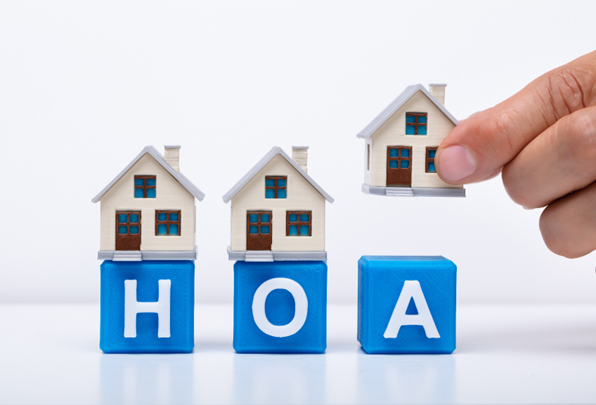If you own a property in a homeowners association (HOA) in Boston, understanding the maintenance responsibilities of your HOA is crucial. HOAs play a significant role in maintaining the community’s appearance, functionality, and property values, but their responsibilities can vary widely depending on the association’s bylaws.
In this post, we’ll break down what’s typically covered by Boston HOAs, what’s usually the homeowner’s responsibility, and how to navigate any gray areas. Whether you’re a new homeowner or a seasoned property owner, this guide will help you know what to expect from your HOA.
What’s Typically Covered by Boston HOAs?
HOAs are responsible for maintaining common areas and shared amenities, as outlined in their governing documents. Here’s what’s usually covered:
- Common Areas
- Landscaping: Maintenance of shared green spaces, including mowing, trimming, and snow removal.
- Parking Lots and Driveways: Repairs, resurfacing, and snow removal for shared parking areas.
- Sidewalks and Pathways: Upkeep and repairs of walkways within the community.
- Building Exteriors (for Condos and Townhomes)
- Roofs: Repairs and replacements for shared roofing structures.
- Siding and Paint: Maintenance of exterior walls and paint.
- Windows and Doors: Repairs or replacements for shared entryways and common area windows.
- Shared Amenities
- Pools and Fitness Centers: Cleaning, repairs, and safety inspections.
- Clubhouses and Community Rooms: Maintenance and upgrades.
- Playgrounds and Sports Courts: Upkeep and safety checks.
- Utilities for Common Areas
- Lighting: Maintenance of streetlights and common area lighting.
- Water and Sewer: Utilities for shared spaces like clubhouses or landscaping irrigation.
What’s Typically the Homeowner’s Responsibility?
While HOAs handle shared spaces, homeowners are usually responsible for maintaining their individual units and private property. Here’s what typically falls under the homeowner’s responsibility:
- Interior Maintenance
- Appliances: Repairs or replacements for in-unit appliances like refrigerators, dishwashers, and HVAC systems.
- Plumbing and Electrical: Fixing issues within the unit, such as clogged drains or faulty wiring.
- Flooring and Walls: Repairs or upgrades to flooring, paint, and drywall.
- Outdoor Spaces (for Single-Family Homes)
- Yard Maintenance: Mowing, landscaping, and snow removal for private yards.
- Driveways and Walkways: Repairs and maintenance for private driveways and pathways.
- Windows and Doors (for Condos and Townhomes)
- Interior-Facing Windows and Doors: Maintenance and repairs for windows and doors that face the interior of the unit.
- Balconies and Patios:
- In some HOAs, these are considered limited common areas, meaning the HOA may handle structural repairs, but the homeowner is responsible for cleaning and minor upkeep.
- Exterior Windows and Doors:
- While the HOA may cover the exterior frame, the homeowner might be responsible for the glass or interior components.
- Clarifying Responsibilities:
- We’ll review your HOA’s bylaws and explain what’s covered and what’s not.
- Coordinating Repairs:
- Whether it’s an HOA-covered repair or something you’re responsible for, we’ll handle the logistics.
- Preventing Disputes:
- We’ll ensure all maintenance tasks are completed on time and to standard, reducing the risk of conflicts with your HOA.
Gray Areas: What to Watch Out For
Some maintenance responsibilities can fall into a gray area, depending on the HOA’s bylaws. For example:
Pro Tip:
Always review your HOA’s governing documents to understand your specific responsibilities. If something isn’t clear, reach out to your HOA board or property management company for clarification.
How a Property Management Company Can Help
Navigating HOA maintenance responsibilities can be tricky, especially if you own multiple properties or live outside of Boston. A property management company like Greater Boston Property Management can help by:
Conclusion
Understanding your HOA’s maintenance responsibilities is key to avoiding unexpected costs and ensuring your property remains in top condition. By knowing what’s covered, what’s not, and how to handle gray areas, you can protect your investment and enjoy a hassle-free living experience.
If you’re unsure about your HOA’s responsibilities or need help managing your property, Greater Boston Property Management is here to assist. From clarifying bylaws to coordinating repairs, we’ll make sure your property is well-maintained and compliant with HOA rules.

